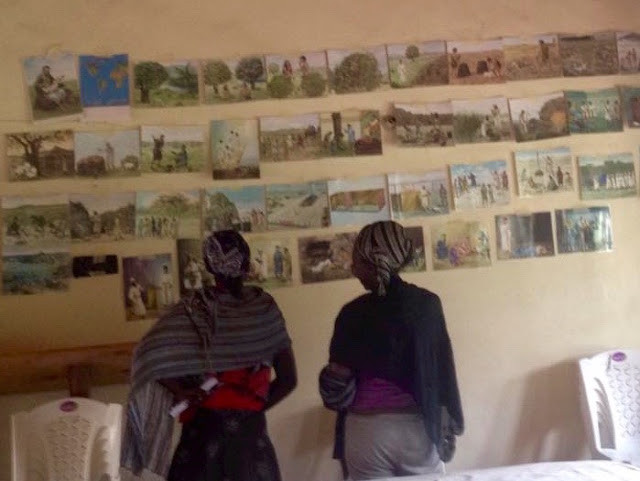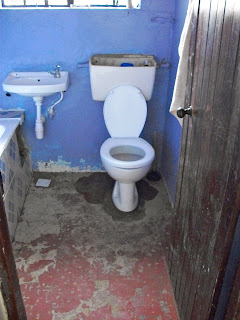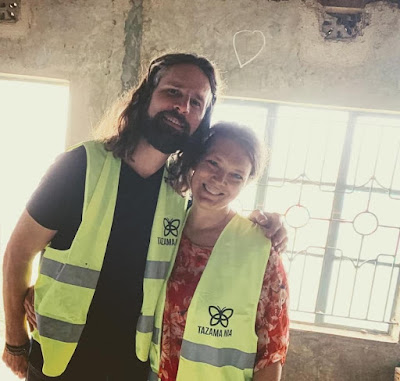Depending on Jesus – Addressing Poverty Properly (3 of 8)
 |
| We are broken, sharing the Story of God with broken friends. |
In my previous post, I worked on a broader definition of poverty. What about our response? What does this mean for us, the church? While on this side of heaven we will never be able to fully define poverty, we must remain committed to asking the right questions, questioning our methods, and holding ourselves (each congregant) accountable to the process of loving our neighbor. Only then will we begin to prayerfully live by the Spirit and follow God’s heart. Jesus is the only person who ever helped the poor perfectly. In every situation he knew exactly how to respond, what to say, what to do. Through discipleship, we must continue to ask, “How are we going to help people become actors in their own [hi]story?” - This question applies to both the materially poor and non-poor.
As the church, we must understand that poverty is not just a
lack of funds or resources. We want to
address poverty issues holistically: financial, emotional, social, relational
and fundamentally spiritual poverty. All
of these issues can be addressed through discipleship relationships and a local
church.
Man’s relationship with God is his highest form of wealth.
When we leave out the spiritual poverty and the discipleship
dynamic, we are not representing or offering anything different than any other
NGO and relief agency out there[1]. In fact, we misrepresent Christ. To the common person, we become just another
one of the thousands of inadequate programs that increasingly are diverging
from plans that have their best interest in mind.
There is no real explanation for why social systems exclude the
poor and become self-serving. A
spiritual dimension is needed to account for the fact that social institutions
frequently frustrate even the best and most noble intentions of the people who
inhabit and lead them. Furthermore, there is no means to account for the
destructive behaviors and poor choices of both the poor and the non-poor, nor
for the fact that the poor often exploit each other. [3]
Pride, greed and corruption flow
throughout all socio-economic levels, not just top-down vertically but horizontally
as well. In countries such as Kenya
there is a mentality that thinks, “as long as I am ahead of you, I am ok.” It motivates someone to get ahead, exploit
others and stay there at all costs. Even
in the west we continuously rate our status competing with our neighbors in
bigger cars, better grass and the best toys.
This goes on to impact and potentially damage all relationships
including neighbors, the church and family.
Daniel Hays gives us a piece of the biblical perspective and
how we all need to consider how we treat our neighbor. Let us not forget that it is our sinful
behavior that hurts others and separates us from God. While in his analysis Hays uses the sin of
racism to reach his point, the context of racism can be interchanged by our
other sins against people such as: tribalism, pride, greed, selfishness, lust,
corruption, entitlement and impunity.
Hays tells us:
[2] Both
the dignity and the equality of human beings are traced in Scripture to our
creation. Racism or the superiority of
one’s own race is a denial that all people have been created in the image of
God. This is at the heart of the definition on racism. ‘In short, racism from
the Christian standpoint is a response that violates the equalitarian principle
implied in the biblical doctrine of the imago
Dei [the image of God]. Proverbs
14:31 and 17:5 likewise connect the implications of God’s creation of people
with one’s ethical behavior towards other people. Proverbs 14:31 ‘He who oppresses the poor
shows contempt for their maker.’ Proverbs 17:5 ‘He who mocks the poor shows
contempt for their maker.’ The superior
attitude taken by one in a socio-economic setting toward another in a poor
setting is an affront to the God who created them both. All people created by God deserve to be
treated with dignity and respect.
Development work is hard. We make mistakes, there is a lot of discouragement but it forces us to constantly depend on Jesus. Discipleship and accountability through the church and the work
of the Holy Spirit can guide people into proper relationships with others. Let us remember that we define transformation
as a changed people and changed relationships.
The photo above is of two women at our community center, one that we have been walking with closely. They are both very broken; abused, alcoholic, prostitutes. What is beautiful about this picture is that it is a glimpse of the transformation in their own lives. In the picture, one of the women is retelling our Story of God lessons to her friend. In the midst of her own brokenness, she knows her need for Jesus enough to share her hope with her friend. She is currently undergoing rehab.
What I have come to discover is that while I address poverty issues and walk with others towards transformation, Jesus still desires to work in me and my own issues, my own poverty. Our work, living with the marginalized poor, often accentuates my own poverty and brokenness. What we have to offer others is merely a testimony of our own brokenness but also one that is surrounded with hope in Jesus, our deliverer. Jesus enables us to love our neighbors despite our own failures. He is still at work, reconciling all things back to God.
The photo above is of two women at our community center, one that we have been walking with closely. They are both very broken; abused, alcoholic, prostitutes. What is beautiful about this picture is that it is a glimpse of the transformation in their own lives. In the picture, one of the women is retelling our Story of God lessons to her friend. In the midst of her own brokenness, she knows her need for Jesus enough to share her hope with her friend. She is currently undergoing rehab.
What I have come to discover is that while I address poverty issues and walk with others towards transformation, Jesus still desires to work in me and my own issues, my own poverty. Our work, living with the marginalized poor, often accentuates my own poverty and brokenness. What we have to offer others is merely a testimony of our own brokenness but also one that is surrounded with hope in Jesus, our deliverer. Jesus enables us to love our neighbors despite our own failures. He is still at work, reconciling all things back to God.

